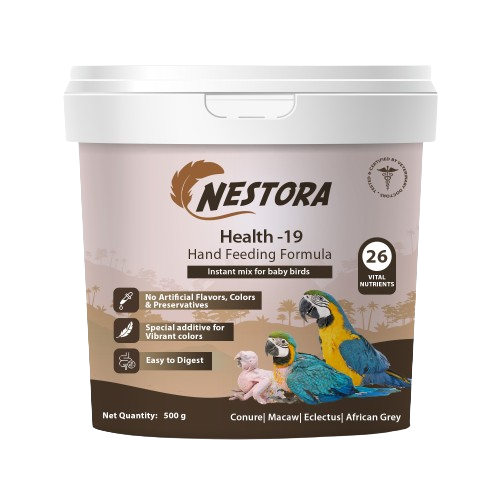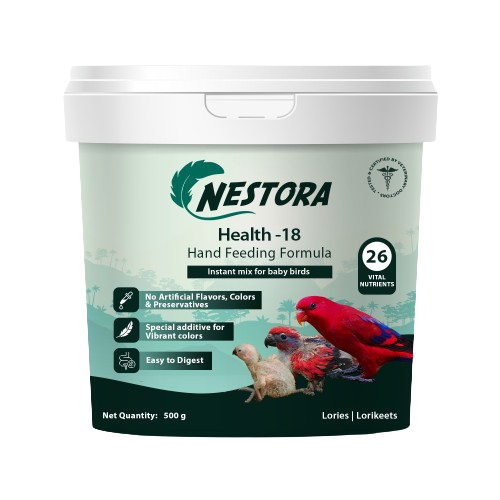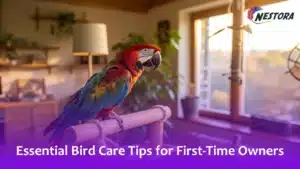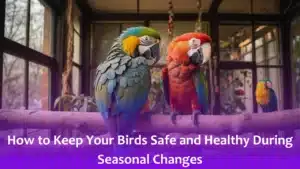
Five Major Bird Feeding Errors and Simple Solutions
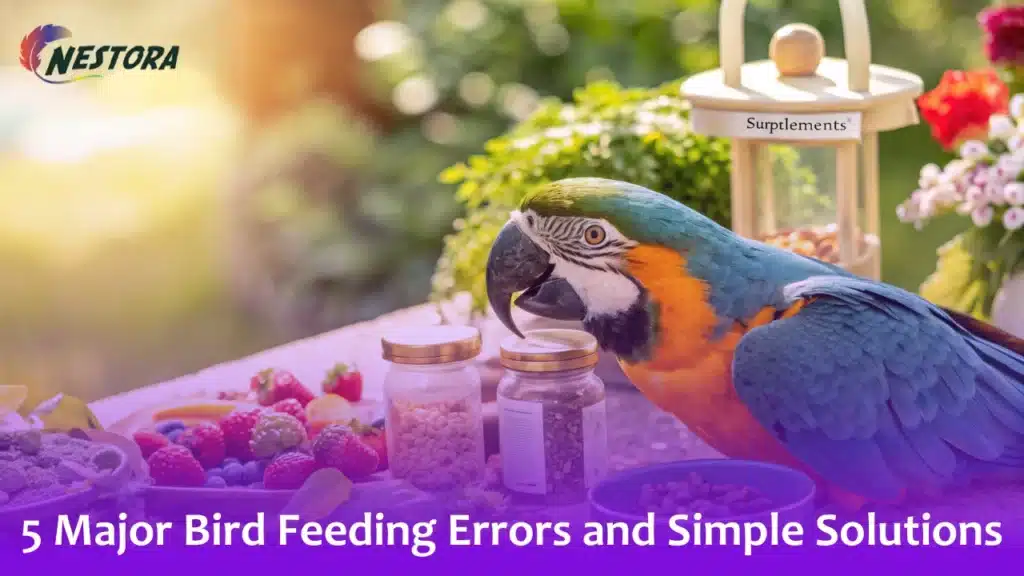
Introduction
One of the most elementary and rewarding ways to enjoy nature from your home is bird feeding. However, many people unknowingly make mistakes that can harm the birds they are trying to rescue. Mistakes like providing the incorrect kind of food or failing to maintain feeders properly can discourage birds and lead to unhealthy surroundings. We’ll look at the top five bird feedingmistakes in this guide and providepractical advice on how to steer clear ofthem. With a few modest changes, you can create a safe, welcoming environment for birds while also appreciating their bright presence in your surroundings.
Table of Contents
ToggleImportance of Feeding Birds
Bird hand feeding is simply not an activity undertaken because it is a great past time; it helps to keep alive the bird populations and therefore biodiversity. Supporting their survival and enhancing biodiversity.
Here’s why it matters:
1. Supports Bird Populations
Natural food supplies may be limited during arid summers or hard winters. Supplemental feeding gives birds the nourishment they need to thrive during these trying times, helping them to survive.
2. Enhances Biodiversity
When you provide food for birds, it might attract a variety of species to your garden or outdoor area. This kind of enhances the ecosystem and gives your surroundings a certain beauty.
3. Promotes a Bond with Nature
Taking care of and watching birds can be therapeutic. It provides a serene experience that enables you to enjoy the beauty of nature and re-establish a connection with it.
4. Promotes Ecological Equilibrium
Birds play an important part in environmental conservation. By spreading seeds, pollinating plants, and managing pests, they maintain a robust and harmonious ecosystem.
5. Infuses Outdoor Environments with Vitality
Your surrounds are infused with color, bustle, and music when birds are feasting. It converts gardens and balconies into thriving environments.
1. Making Use of the Incorrect Bird Food
Mistake:Not all birds eat the same food. Offeringinappropriate seeds or mixes may discourage birds from visiting your feeder.
Birds require a certain diet. For example, finches like nyjer seeds, whereas doves and sparrows prefer millet. Unfortunately, many low-cost seed blends include fillers like milo or wheat, which most birds discard. These fillers keep birds away from your feeder in addition to wasting food.
How to Avoid:
Observe the food habits of local bird species in your region.
- Use warm, soapy water and a scrub brush, feeders should be cleaned every two weeks.
- Feeders should be completely cleaned and left to air dry before being refilled in order to get rid of soap residue.
- Pure nectar prepared from sugar and water is supplied in the proper amounts for nectar-loving birds, such as hummingbirds.
2. Neglecting Feeder Cleanliness
Mistake:Unhealthy feeders can contain mold, germs, and diseases that can kill birds.
Although itsfrequently disregarded, feeder hygiene is essential for bird health. Mold can form on old or damp seeds, and it can kill birds. In a similar vein, filthy feeders must be kept pristine because they can transmit illnesses.
How to Avoid:
- Feeders should be completely cleaned and left to air dry before being refilled in order to get rid of soap residue.
- Check for rotten seeds on a regular basis, especially after rain, and replace them right away.
- As you clean, switch up the feeders so the birds always have access to fresh food.
3. Overcrowding Feeders
Error: Overcrowded feeders raise the possibility of disease transmission and can make the birds more aggressive.
An excessive number of birds congregating at a single feeder might cause tension and anxiety among the birds. Larger or more dominant birds may prohibit smaller species from feeding, and close contact raises the danger of disease transmission.
How to Avoid:
- Space feeders apart to provide birds with enough room to feed comfortably.
- Observe bird behavior. If you notice aggression or overcrowding, adjust the placement of feeders.
4. Providing Spoiled or Contaminated Food
Mistake:Spoiled seeds, wet food, or contaminated water can harm birds and keep them away from your feeder.
Food quality is crucial when feeding birds. Wet or moldy seeds can make birds sick, while dirty water in bird baths can spread infections. Maintaining fresh food and clean water is essential for their safety.
How to Avoid:
- Every day, especially after rain, check feeders to make sure food hasn’t gotten wet or ruined.
- Provide proper storage for bird food inside a closed box in a cool, dry environment to prevent mold and infestations.
- Clean bird baths from the collection of dirt and algae daily by changing the water every day and brushing them at least once a week.
Bird Nutrition Tips: Providing birddiet tips, such as species-specific seeds or fresh fruits, improves the health of your birds and makes them visit your garden more often.
5. Placing Feeders in Unsafe Locations
Mistake:Putting feeders in places prone to predators or close to windows can pose a threat to birds.Bird feeders must be placed with much care to ensure that your feathered friends are safe. Feeders too close to windows increase the risk of collisions, and feeders near dense bushes leave birds vulnerable to predators like cats.
How to Avoid:
- Place feeders at least 10 feet away from windows or install window decals to prevent bird collisions.
- Feeders should be placed in open spaces with some adjacent cover, like trees or shrubs, to give birds a place to hide.
BirdsDiet Tips
Looking for the perfect nutrition for your conures? Health-18 and Health-19 are the ultimate solutions for their unique dietary needs!
Both Nestora’sHealth-18 and Health-19 are high-quality instant mixes designed to meet the special nutritional requirements of newborn birds. Health-18 supports nectar-feeding birds like Lories and Lorikeets with 18% protein and 3800 kcal/kg, while Health-19 fuels high-energy species like Macaws andGrey parrots with 20% protein, 15% fat, and 4300 kcal/kg for optimal growth and vitality.
These hand feeding formulas are specifically intended for the benefit of other bird species.
Conclusion
If you make sure that the feeders are clean and fill the feeders appropriately and hang them carefully, you might have the setting for attracting various species of birds. Proper care and attention can lead to both a contribution to bird health and an appreciation of their beauty and activity in your environment.

